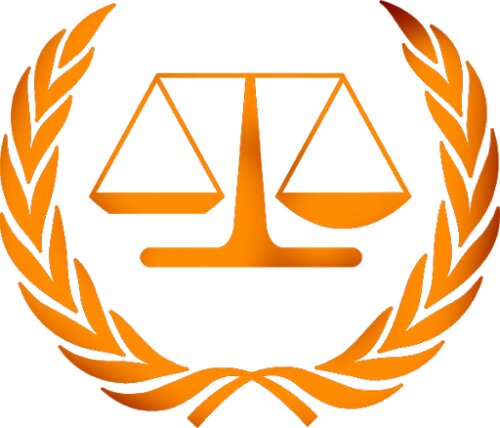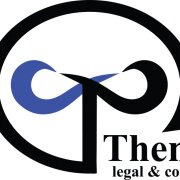Best Collaborative Law Lawyers in Thailand
Share your needs with us, get contacted by law firms.
Free. Takes 2 min.
Free Guide to Hiring a Family Lawyer
Or refine your search by selecting a city:
List of the best lawyers in Thailand
Thailand Collaborative Law Legal Questions answered by Lawyers
Browse our 1 legal question about Collaborative Law in Thailand and read the lawyer answers, or ask your own questions for free.
- Divorce rights and obligations
- I am Dutch and married for 13 years with a Thai wife. Over the past 10 years we lived outside Thailand as I was an expat. From our marriage we have a daughter of 10 years and is studying at the international school. We have a house in Chiang Mai... Read more →
-
Lawyer answer by SORASAK LAWFIRM
Dear Sir, Subject: Family, Divorce & Separation, Contract and Collaborative Law Thanks you for your email received today. Incase of foreigner husband and Thai wife under Thai law, the marriage property will be forced by hasband's country law accept that...
Read full answer
About Collaborative Law in Thailand
Collaborative Law in Thailand is a relatively new approach that focuses on resolving legal disputes amicably without going to court. This method, which is particularly useful in family law cases such as divorce or custody disputes, emphasizes cooperation and constructive communication between parties. Lawyers trained in collaborative law work alongside their clients and other professionals to reach a mutually beneficial agreement, saving time and reducing the emotional and financial strain often associated with litigation.
Why You May Need a Lawyer
There are several scenarios where individuals may seek legal advice in the field of Collaborative Law in Thailand. These can include:
- Divorce or separation negotiations, where maintaining a respectful relationship is crucial.
- Child custody arrangements, ensuring the children's best interests are prioritized.
- Financial settlements and division of property, aiming for a fair distribution without court intervention.
- Modification of existing agreements or orders in response to changing circumstances.
- Business disputes where a confidential, amicable resolution is preferred.
Local Laws Overview
In Thailand, the principles of Collaborative Law are aligned with the Civil and Commercial Code and the Family Code. Key aspects that are relevant include:
- The emphasis on maintaining confidentiality throughout the collaborative process.
- Legally binding agreements reached through mutual consent, endorsed by the court if necessary.
- The requirement for all parties, including lawyers, to commit to resolving the issue without litigation.
- Specialized training for lawyers to ensure effective facilitation of the collaborative process.
Frequently Asked Questions
What is collaborative law?
Collaborative law is a legal process that enables clients to settle disputes without going to court, focusing on negotiation and open communication, with the assistance of trained lawyers and other professionals.
How does collaborative law differ from traditional litigation?
Collaborative law emphasizes mutual agreement and cooperation, aiming to resolve disputes amicably outside of court, whereas traditional litigation often involves adversarial court proceedings.
Who are the participants in the collaborative process?
The participants generally include the disputing parties, their collaboratively trained lawyers, and sometimes other neutral professionals such as financial advisors or child specialists.
Is collaborative law cost-effective?
Typically, collaborative law can be more cost-effective than traditional litigation due to reduced court costs and the emphasis on efficient resolution. However, costs can vary depending on complexity.
Can collaborative law be used in situations other than family disputes?
Yes, collaborative law can be applied to a range of disputes including business conflicts, probate issues, and other civil matters where a cooperative resolution is advantageous.
What happens if the collaborative process fails?
If the process fails and parties choose to litigate, the collaborative lawyers must withdraw, and new legal representation will be required for court proceedings.
How long does the collaborative process take?
The duration depends on the specifics of the case and the commitment level of the parties involved, but it tends to be shorter than litigation due to its focused approach.
Is there any legal framework for collaborative law in Thailand?
While Thailand does not have a specific legal framework solely for collaborative law, practices are in alignment with existing civil and family law codes, emphasizing mediation and negotiation.
Are agreements from the collaborative process legally binding?
Yes, once an agreement is reached, it can be formalized into a legally binding document and, if necessary, approved by the court.
How can I find a collaboratively trained lawyer in Thailand?
Many law firms in Thailand offer services in collaborative law. It is advisable to enquire about a lawyer's specific training and experience in collaborative processes.
Additional Resources
For further assistance, you may consider contacting the following organizations:
- The Law Society of Thailand - Offers resources for finding qualified legal professionals.
- Local Bar Association - Provides directories of collaborative law practitioners.
- Mediation and Arbitration Centers - Offers dispute resolution services and can guide collaborative law processes.
Next Steps
If you need legal assistance in collaborative law, consider taking the following steps:
- Identify your legal objectives and desired outcomes.
- Research and contact lawyers with experience in collaborative law practices.
- Request an initial consultation to discuss your case and understand the lawyer's approach.
- Compile necessary documents and information to facilitate smooth negotiations.
- Stay engaged and open to suggestions and compromises during the collaborative process.
Lawzana helps you find the best lawyers and law firms in Thailand through a curated and pre-screened list of qualified legal professionals. Our platform offers rankings and detailed profiles of attorneys and law firms, allowing you to compare based on practice areas, including Collaborative Law, experience, and client feedback.
Each profile includes a description of the firm's areas of practice, client reviews, team members and partners, year of establishment, spoken languages, office locations, contact information, social media presence, and any published articles or resources. Most firms on our platform speak English and are experienced in both local and international legal matters.
Get a quote from top-rated law firms in Thailand — quickly, securely, and without unnecessary hassle.
Disclaimer:
The information provided on this page is for general informational purposes only and does not constitute legal advice. While we strive to ensure the accuracy and relevance of the content, legal information may change over time, and interpretations of the law can vary. You should always consult with a qualified legal professional for advice specific to your situation.
We disclaim all liability for actions taken or not taken based on the content of this page. If you believe any information is incorrect or outdated, please contact us, and we will review and update it where appropriate.
Browse collaborative law law firms by city in Thailand
Refine your search by selecting a city.

















